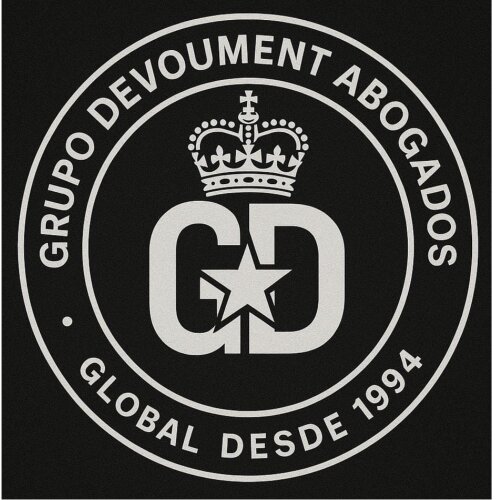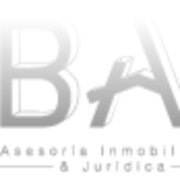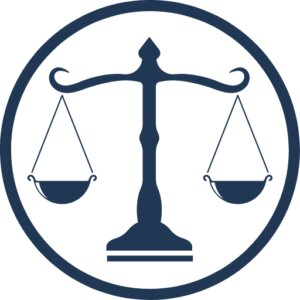Best Funds & Asset Management Lawyers in Colombia
Share your needs with us, get contacted by law firms.
Free. Takes 2 min.
Or refine your search by selecting a city:
List of the best lawyers in Colombia
About Funds & Asset Management Law in Colombia
Funds and asset management in Colombia refer to the legal framework and operational practices that govern the management of investments, assets, and pooled funds on behalf of individuals or institutional clients. This sector is regulated and supervised to protect investors and promote transparency and stability in the Colombian financial market. Asset management can involve mutual funds, pension funds, private equity funds, and other collective investment schemes. The industry plays a key role in mobilizing capital and supporting the country’s economic growth.
Why You May Need a Lawyer
People often seek legal advice in funds and asset management for various reasons. Common situations include setting up or restructuring investment funds, complying with regulatory requirements, drafting and negotiating asset management contracts, assessing risks related to taxation, handling disputes between investors and fund managers, and ensuring lawful cross-border investments. Whether you are an investor, a fund manager, or a service provider, navigating the legal complexities can help to protect your interests, avoid regulatory penalties, and enhance investment outcomes.
Local Laws Overview
Colombia’s legal framework for funds and asset management is comprehensive and constantly updated to align with international standards. Key laws and regulations include the Financial Statute, which is the core legal framework for financial activities, and the rules issued by the Financial Superintendency of Colombia (Superintendencia Financiera de Colombia, SFC), which oversees market conduct and stability. The establishment and operation of collective investment schemes, mutual funds, hedge funds, and private equity funds must comply with strict disclosure, registration, and risk management requirements. Foreign investors can participate in the Colombian funds market, subject to compliance with local and international anti-money laundering laws, tax obligations, and foreign exchange controls.
Frequently Asked Questions
What types of investment funds are regulated in Colombia?
Colombia regulates several types of collective investment vehicles, including mutual funds, private equity funds, closed-end funds, pension funds, and real estate funds. Each type must comply with specific rules regarding their structure, risk management, and reporting.
Who supervises funds and asset management in Colombia?
The Financial Superintendency of Colombia (SFC) is the primary supervisory authority that oversees all activities related to funds and asset management to ensure compliance and protect investors.
Can foreign individuals or entities invest in Colombian funds?
Yes, foreign investors are allowed to participate in Colombian investment funds, but they must adhere to applicable foreign investment, tax registration, and anti-money laundering regulations.
What are the main legal responsibilities of a fund manager?
Fund managers must act in the best interests of investors, maintain transparency, comply with disclosure obligations, manage risks appropriately, and comply with all applicable regulations.
Are there restrictions on investment strategies in Colombia?
Yes, regulations specify the permitted investment assets and risk profiles for each fund type. Fund managers must operate within these boundaries and regularly report their portfolio compositions.
How are disputes between investors and fund managers resolved?
Disputes can be settled through direct negotiation, arbitration, or the Colombian courts depending on the contractual provisions and nature of the dispute.
What reporting obligations exist for funds?
Funds must provide regular reports on portfolio performance, fees, risks, and other disclosures as mandated by the SFC. These reports must also be available to investors.
How does taxation apply to funds and asset management?
Taxation varies depending on the type of fund, investors' residency, and source of investment income. Professional legal advice can clarify obligations for each specific case.
What is required to launch a new investment fund in Colombia?
Launching a fund requires registering with the SFC, drafting legal documentation, structuring governance and compliance mechanisms, and fulfilling minimum capital and disclosure obligations.
Are there continuing legal compliance obligations for funds?
Yes, ongoing obligations include regular financial and compliance reporting, adherence to anti-money laundering regulations, and prompt disclosure of material changes to investors and authorities.
Additional Resources
Those seeking further information or assistance may find the following resources useful:
- Financial Superintendency of Colombia (Superintendencia Financiera de Colombia) - Regulatory guidance, investor protection contacts, and up-to-date regulations.
- Colombian Securities Exchange (Bolsa de Valores de Colombia) - Information on listed funds and market activity.
- National Tax and Customs Direction (Dirección de Impuestos y Aduanas Nacionales, DIAN) - Taxation guidelines for investors in Colombia.
- Chambers of Commerce - Registration, incorporation, and business support services for fund managers and investment firms.
Next Steps
If you require legal assistance with funds and asset management in Colombia, consider taking the following steps:
- Define your investment or asset management objectives and outline your specific legal queries or concerns.
- Gather relevant documents such as fund prospectuses, contracts, and communication with regulators.
- Research and select a lawyer or law firm with proven expertise in Colombian funds and asset management law.
- Prepare questions and provide complete information to facilitate accurate legal advice.
- Follow up on legal recommendations and ensure compliance with evolving regulations by maintaining ongoing contact with your legal advisor.
Lawzana helps you find the best lawyers and law firms in Colombia through a curated and pre-screened list of qualified legal professionals. Our platform offers rankings and detailed profiles of attorneys and law firms, allowing you to compare based on practice areas, including Funds & Asset Management, experience, and client feedback.
Each profile includes a description of the firm's areas of practice, client reviews, team members and partners, year of establishment, spoken languages, office locations, contact information, social media presence, and any published articles or resources. Most firms on our platform speak English and are experienced in both local and international legal matters.
Get a quote from top-rated law firms in Colombia — quickly, securely, and without unnecessary hassle.
Disclaimer:
The information provided on this page is for general informational purposes only and does not constitute legal advice. While we strive to ensure the accuracy and relevance of the content, legal information may change over time, and interpretations of the law can vary. You should always consult with a qualified legal professional for advice specific to your situation.
We disclaim all liability for actions taken or not taken based on the content of this page. If you believe any information is incorrect or outdated, please contact us, and we will review and update it where appropriate.
Browse funds & asset management law firms by city in Colombia
Refine your search by selecting a city.














